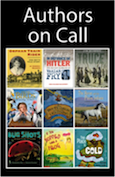Recently I received an email from a "passage writer" at the Center for Educational Testing and Evaluation (CETE) in Lawrence, KS offering me $500 to write passages for the assessment tests. Instead of excerpting my books, which they've been doing for years, they are now asking me to create new material. Maybe it's because I've upped my price for the excerpts. Many years ago, I didn't charge very much. After all, it was just two or three paragraphs written years ago that would appear on an exam. Back then, I didn't notice that the number of children who would be reading my work would be in the tens of thousands.
In recent years, I've wised up and charged considerably more for this limited use of a piece of my work, as have my fellow award-winning nonfiction authors. I guess the test creators realized that relatively few test takers (children) have encountered our books in their classroom work. Schools supply children with committee-generated reading material (i.e. textbooks), complete with worksheets, teachers' guides, study questions, controlled vocabulary and reading levels. The writing is pedestrian at best and downright insulting to the reader at worst. I'll wager that not a single kid picks up one of these books out of curiosity or to read for pleasure.
Meanwhile, our body of children's nonfiction literature is waiting on library shelves on the very same subjects that are in the curriculum. Since these books do not have a captive audience, the authors write to captivate. The books are designed to inspire and entertain as well as inform readers about the real world. One reason why these books are so good is that authors are writing material that they each feel passionate about and they have the freedom to use many of the same literary devices fiction writer use; humor, satire, poetry, and personal idiosyncrasies that give the works "voice." The books are beautifully illustrated and designed, a treat for the eye as well as the mind. The freedom for self-expression in nonfiction has been hard-won by many of these authors over the years. I, personally, have fought numerous battles with editors for playful language, activities integrated into the text, art that is woven into a description instead of using a disconnected caption, and insertion of humorous asides.
Many years ago, I was asked to write a science textbook. I was given an outline and writing guidelines that made me feel strangled. Although I needed the money I turned it down. "I don't write like this," I told them. "You could give an outline to Shakespeare and you might get something you'd like to publish but you wouldn't get Shakespeare." (Not that I'm Shakespeare, but I think you get my point.) Another example is my colleague, Steve Sheinkin, who wrote history textbooks for years until he couldn't stand it any more. His most recent book, "Bomb! The Race to Build--and Steal--the World's Most Dangerous Weapon", was a National Book Award Finalist, and won the Sibert, Newbery, and Young Adult Library Services Association awards. So you can imagine how thrilled we authors are that the Common Core State Standards require that our kinds of books finally be included in literacy across the disciplines in elementary and high school classrooms. Our step-child genre is emerging into the spotlight.
Not so fast, say the test-makers. Maybe the price for excerpts from excellent books by established authors has become too high, hence the offer to commission new passages. But the kicker to the soliciting email was that there were two attachments: "Tips for Writing Topics" and "Writing Guidelines." Here's a sample:
Topic ideas should not be too broad. Proposed topic ideas should be given in detail, in one to two full paragraphs.When coming up with topic ideas for reading passages, it's always best to go with something familiar to you. Choose topics in which you have prior knowledge or interest. This will make the passage easier to write, and will often reflect in the writing. Because writers may use a maximum of 5 sources when writing a passage, choosing passages in your realm of knowledge will also minimize the number of sources you have to rely on.Keep in mind that passages may not have references to drugs, sex, alcohol, gambling, magic, holidays, religion, violence, or evolution, and that topic ideas should not lend themselves to passages which would require such content.
And
Use grade-appropriate vocabulary. To check your passage, use Microsoft Flesch-Kincaid Grade Level readability test (part of Microsoft Word programs).
Clearly the authors of these documents didn't know who they were writing to. Did they think that after 90 books I need their tips? Do they have any idea how these "tips" flatten text and clip the wings of a talented writer? Do they understand that these are the same kinds of rules that make textbook prose so deadly?
The good intentions of the Common Core State Standards are being hijacked by the test makers. Suddenly they are arbiters of the quality of nonfiction children are supposed to comprehend and think about critically. So here's my challenge to them. Why don't you let us authors take your standardized tests under the same conditions that you give to children? You can't argue that we haven't mastered the standards, especially since you're asking us to create the material on which you base your assessments. I have no idea how we'd do. I can provide at least two dozen top nonfiction authors in all disciplines and more if you need a significant sample. I can promise we'll do our best. Whadya think?

